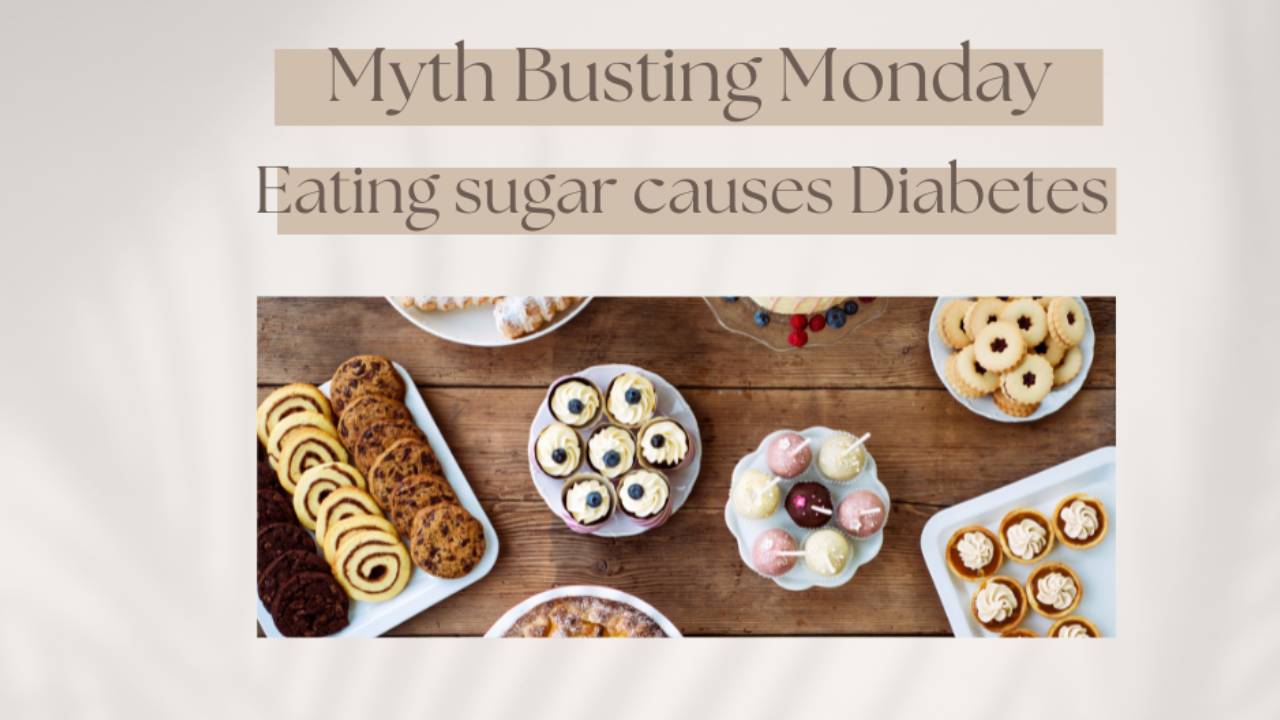
Does Eating Sugar Cause Diabetes? Unpacking the Myth
Apr 24, 2024It's a common belief that floats around in conversations about health: eating too much sugar causes diabetes. But how true is this statement? In this blog post, we're diving into the science behind this belief to separate fact from fiction and provide you with accurate information about diabetes and your diet.
Diabetes is a complex condition characterized by the body's inability to manage blood glucose levels. It comes in various forms: type 1 diabetes, an autoimmune disease where the body attacks insulin-producing cells; type 2 diabetes, which is often related to lifestyle factors and develops over time; and gestational diabetes, which can occur during pregnancy.
While it's a widespread myth that sugar consumption directly causes diabetes, the truth is more nuanced. Type 1 diabetes is entirely unrelated to sugar intake, and no amount of sugar will trigger this condition. Type 2 diabetes, however, is strongly influenced by overall lifestyle, including diet, physical activity, and weight management.
Excessive sugar intake can lead to weight gain and obesity, both of which are significant risk factors for developing type 2 diabetes. Eating a lot of high-sugar foods often means more calories, which, if not burned off, can lead to excess body fat. This body fat, especially around the abdomen, is linked to insulin resistance—a precursor to type 2 diabetes.
However, it's important to understand the concept of the glycemic index (GI), which measures how quickly foods raise blood sugar levels. Foods with a high GI can spike blood glucose rapidly, which can strain your body’s ability to manage these levels. Regularly consuming high-GI foods can contribute to insulin resistance over time.
Research shows that while there is a correlation between a diet high in sugary foods and an increased risk of diabetes, correlation does not imply causation. Diabetes development is typically multifactorial, influenced by genetic, environmental, and lifestyle factors.
To prevent type 2 diabetes, focusing on a balanced diet is key. This means eating a variety of foods in appropriate portions to maintain a healthy weight. Here are some tips for reducing sugar intake:
- Choose whole fruits instead of juices or sweetened dried fruits.
- Opt for whole-grain products over refined grains.
- Be mindful of hidden sugars in sauces, dressings, and packaged foods by reading labels carefully.
Switching to a diet lower in processed foods and sugars and higher in fiber can improve your overall health and reduce the risk of diabetes.
While eating sugar per se doesn't "cause" Diabetes, it's part of a larger set of dietary habits that can increase your risk. Managing sugar intake, alongside regular physical activity and maintaining a healthy weight, can significantly lower your chances of developing type 2 diabetes.
Do you have questions or thoughts about sugar and diabetes? Feel free to share them in the comments below! Let's discuss and help spread the word by sharing this post with your friends and family.
Stay Connected!
Sign up for the Healthy Bites newsletter for more tips!
We hate SPAM. We will never sell your information, for any reason.
